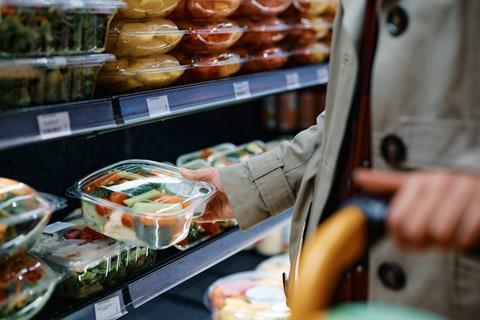Fresh produce association urges the European Commission to withdraw or amend specific parts of its draft proposal for pre-cut fruits and vegetables
Freshfel Europe has warned the European Commission on the far-reaching implications of its draft proposal on marketing standards, if rules on mandatory country-specific origin labelling are maintained for pre-cut fruit and vegetables.

The draft is currently in public stakeholder consultation, and the sector has urged the EC to withdraw or amend specific parts of its draft proposal that will impact competitiveness, raise prices and impact consumption of convenience fresh produce.
The draft Regulation on marketing standards is meant to align with the objectives of the Farm to Fork Strategy, namely the provisions relating to increased information for consumers and reduction of food waste.
The association outlined that, while the EC’s intentions correspond to the objectives of the Farm to Fork Strategy, the proposed draft text is expected to lead to a ”significant price increase” of pre-cut fruit and vegetables marketed as IV gamma products.
The new rules could reduce fresh produce’s attractiveness to consumers, breaching the ambition of the Farm to Fork Strategy to move to a more plant-based diet, it said.
Freshfel was also conclusive that the Commission’s proposal would increase plastic packaging waste and generate more food waste.
“The proposal of the Commission will not allow the IV gamma industry to process ‘ugly’ fruit and vegetables or oversized products,” explained Eglė Baecke, director of food quality and security.
”While the Commission intends to reduce food waste by allowing ‘ugly’ fruit and vegetables to be sold locally and directly by producers to consumers, the share of these fruit and vegetables is negligible compared to the volumes used by the IV gamma industry and sold as kitchen-ready or ready-to-eat to consumers,” she continued.
”If adopted, the rules will unfairly discriminate operators involved in the preparation of IV gamma products against the manufacturers of frozen or canned fruit and vegetables.
”Manufacturers of processed foods will still be allowed to source ‘ugly’ fruit and vegetables,” Baecke noted. ”As such, the IV gamma industry will no longer be able to contribute to reduce food waste. Moreover, there are products, such as lettuce, that cannot be processed other than by cutting and will therefore be wasted.”
For sourcing raw materials, diversification was not straightforward and was usually a long process, Freshfel pointed out.
The draft proposal suggests a mandatory origin labelling for all IV gamma products. This will be significantly challenging for current supply patterns and business practices while impacting food security and diversification of sourcing of raw materials.
“We noticed huge inconsistencies in the text with regard to origin labelling of IV gamma products,” said Philippe Binard, general delegate at Freshfel Europe.
”The same rules on origin labelling do not apply to all food categories. Different labelling rules are proposed for products presented in mixes or as single ingredient. Moreover, rules will differ for products composed of raw materials that fall under specific or general marketing standards.
”This will heavily restrict the daily operations of business operators involved in the production of IV gamma products,: he outlined. ”It will impose barriers to sourcing raw materials because packaging materials that include origin indications must be pre-printed in advance.
”This will be reflected in the final price for the European consumer putting further pressure on consumption of fresh fruit and vegetables,” Binard warned. ”Consumption today is already below the recommended norm of 400 g/day.
”The new rules will impact the already low consumption. Consumers choose IV gamma products because of their convenience in combination with price.”
Currently, the labelling of IV gamma products is covered by the Regulation on Food Information to Consumers, and the industry insisted that this was to be continued.
Alternatively, the industry urged the EC to amend its proposal and compromise for the benefit of consumers’ health across the EU, reduction of food waste and protection of the environment.
This could be achieved, Freshfel said, by providing a legal framework which would allow the industry to use ‘ugly’ fruit and vegetables and oversized products as ingredients of IV gamma products.
In addition, the compromise has to include the legal framework that would allow the origin indication as ‘EU, ‘non-EU’, ‘EU & non-EU’ for all products in all compositions falling under the definition IV gamma products.
“The sector urges the Commission services to propose policy initiatives which are justified and meet the objectives of the Farm-to-Fork Strategy based on factual evidence of whether these policy initiatives will not result in devastating consequences in other areas proposed under the same strategy,” Baecke added.
”A Commission-wide governance is needed to address the objectives set under the Farm to Fork Strategy.”